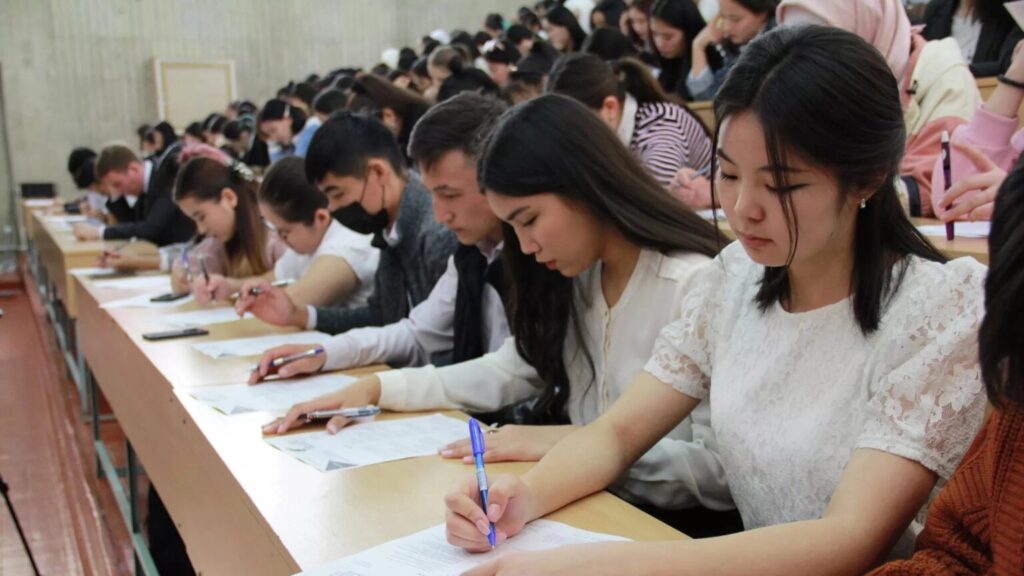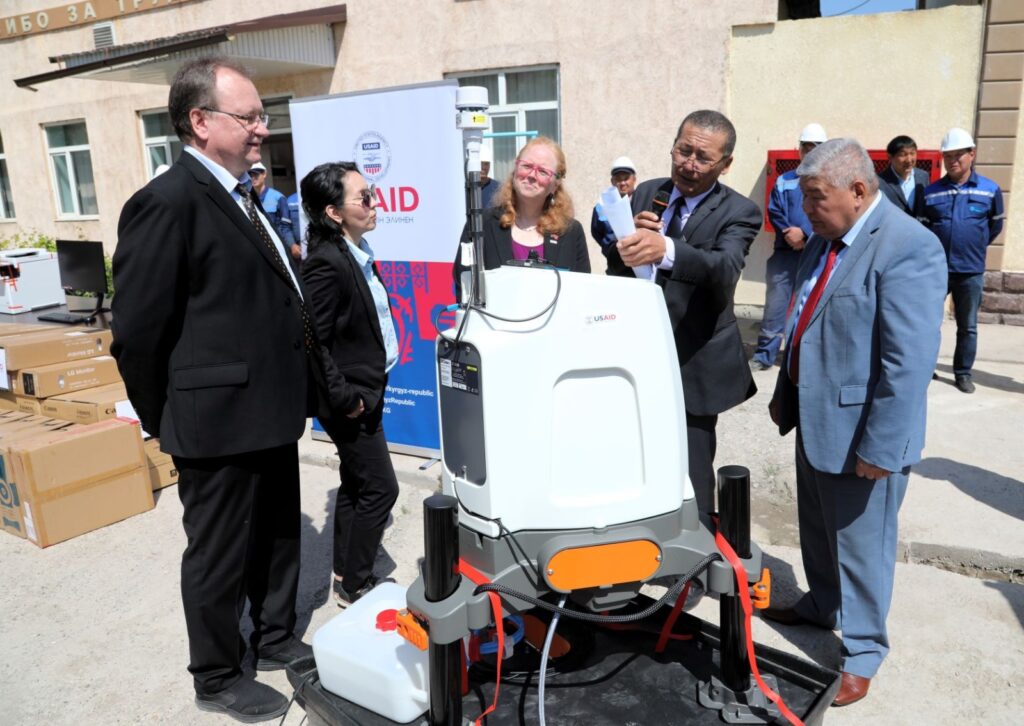Central Asian Public Opinion is the Latest Battle Front Between Putin and Zelenskiy
The settings were starkly different. An Uzbek honor guard in elaborate uniform greeted Russian President Vladimir Putin after he arrived at Uzbekistan’s Tashkent airport on May 26 for a state visit. Two days earlier, Ukrainian President Volodymyr Zelenskiy gave an interview to Central Asian media in his signature army-green combat-ready t-shirt, sitting in the ruins of a Kharkiv printing house destroyed by Russian missiles. With the war in Ukraine into its third year, Putin’s trip to Uzbekistan represents part of his broader mission to nurture long-standing trade and security ties with Central Asian countries, who have been trying to walk a delicate line in their relationships with Russia. Uzbekistan’s President Shavkat Mirziyoyev welcomed Putin with a literal embrace. Their official meeting the next day was scheduled to address bilateral issues and views on “current regional problems,” reported Russia’s state-run news agency Tass. While in Uzbekistan President Putin had boasted that Russia was Uzbekistan’s biggest trading partner with export growth by 23% this year and had invested over $13 billion in the country. He called Uzbekistan to be the biggest state in Central Asia; praised Mirziyoyev’s language policy that protects Russian language in schools and as an official language in Uzbekistan. Russia has started exporting gas to Uzbekistan through Kazakhstan, with some of the gas staying in Kazakhstan. Some analysts argue that Russia can circumvent sanctions by partly relying on imports, mainly from Europe, that come through Central Asia. Over in the war-torn Ukrainian city of Kharkiv, President Zelenskiy’s interview with six journalists from Uzbekistan, Kyrgyzstan and Kazakhstan, some openly affiliated with Radio Free Europe and the Soros Foundation, included a discussion on how to deepen solidarity between the people of Central Asia and Ukraine over a shared anti-Russian sentiment. Zelenskiy tells Central Asians to drop their balancing act towards Russia In the interview, President Zelenskiy challenged Central Asian countries to overcome their economic dependencies and security vulnerabilities and adopt Ukraine’s hardline posture against Russia. The region’s leaders “are still [positioned] more in the Russian direction because of fear of the Kremlin. We [the Ukrainians] have made our choice, we are fighting,” Zelenskiy said, according to a Russian transcript of the interview published by Kazakh media outlet Orda.kz. Zelenskiy told Central Asians and others who are “trying to balance” their relationships with Russia to "not wake the beast" that this strategy will not work because “the beast does not ask anyone: he wakes up when he wants”. Zelenskiy warned Central Asian people that alongside the Baltic states and Moldova, they, too, face a risk of being invaded by Russia given their Russian populations, which the Kremlin may decide to intervene to protect, as it did in Ukraine. He also added grimly, “if you, your people, resist becoming part of Russia, you will inevitably be waiting for a full-scale invasion, death and war.” Calling on the world to unite against Russia, President Zelenskiy recommended that Central Asians isolate Russia economically and diplomatically, arguing that “balancing acts” to help their economy in the...






